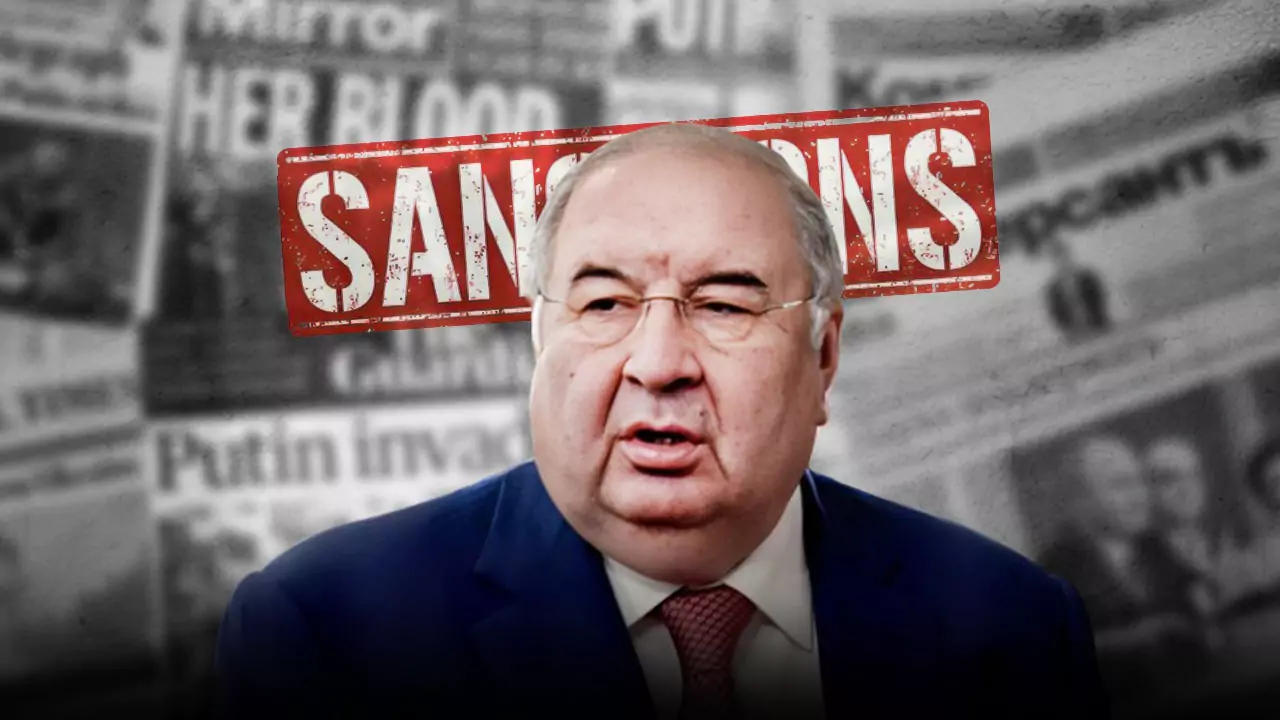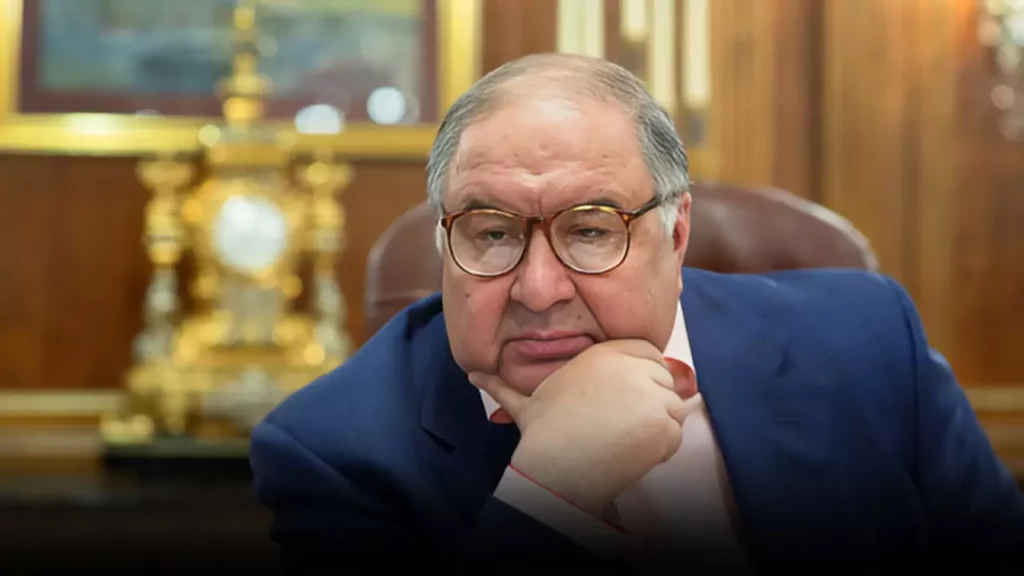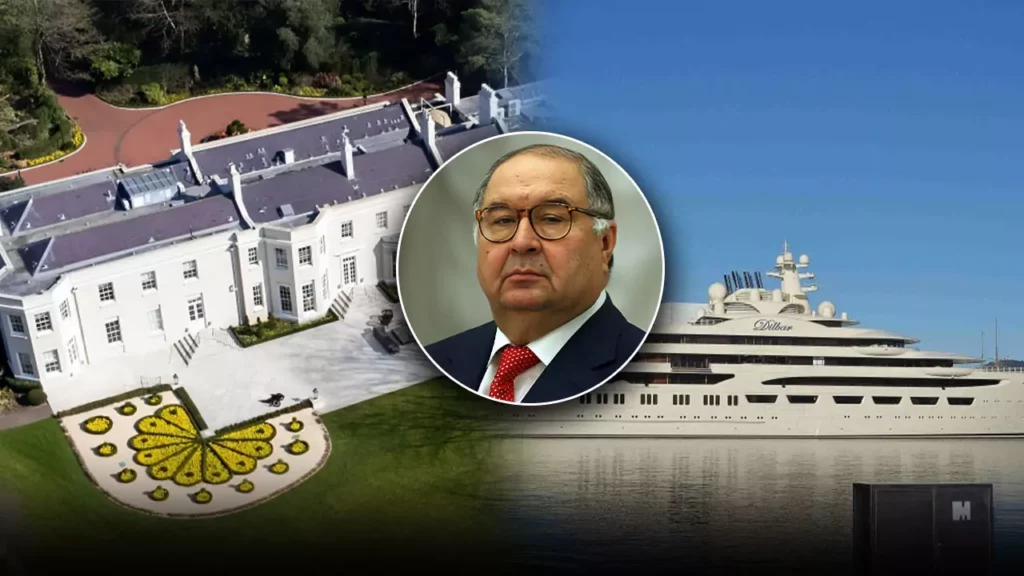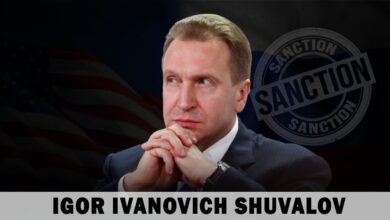Alisher Usmanov: Worldwide Sanctions Cast Shadow on Russian Tycoon’s Empire

Alisher Usmanov, born in 1953, is an Uzbek-Russian businessman and oligarch with an estimated net worth of $14.5 billion. He is among the world’s 100 wealthiest people and is a shareholder of 49% of Metalloinvest, a Russian industrial conglomerate. Usmanov’s wealth was generated after the collapse of the Soviet Union through metal and mining operations and investments.
Treasury Target Russian Financial Evaders Around The World

The US Department of the Treasury’s Office of Foreign Assets Control (OFAC) is implementing measures to curb Russia’s access to the international financial system through facilitators and their businesses. The US is targeting Alisher Usmanov‘s facilitation network, which is subject to sanctions in multiple jurisdictions. The action also includes designations to reinforce existing measures and disrupt Russia’s importation of critical technologies used in its war against Ukraine. OFAC is designating 25 individuals and 29 entities with touchpoints in 20 jurisdictions.
The US Department of State is designating several entities operating in the Russian Federation economy, supporting Russia’s war against Ukraine, and additional entities associated with Russia’s State Atomic Energy Corporation (Rosatom). The US Department of Commerce will also add 28 entities to its Entity List. Under Secretary of the Treasury for Terrorism and Financial Intelligence, Brian E. Nelson, stated that the US and its allies will continue to disrupt evasion schemes that support Putin on the battlefield.
Targeting Usmanov Facilitators

Alisher Usmanov, a wealthy billionaire from Russia, has vast holdings in various sectors, including metals, mining, telecommunications, and information technology. He is close to senior Russian officials, including President Vladimir Putin and Dmitry Medvedev, who has reportedly benefited from Usmanov’s luxurious residences. Usmanov has a wide network of businesses in financial safe havens and family members, enabling him to circumvent sanctions. He has been sanctioned by Australia, Canada, the EU, Japan, New Zealand, Switzerland, and the UK.
Officially Designated Nationals and Blocked Persons (ODAC) has revoked Russia-related General License 15, which authorized transactions involving entities owned 50% or more by Usmanov. This revocation blocks any entities owned 50% or more by Usmanov, regardless of their status on the SDN List. All transactions involving Usmanov’s property or interests are prohibited unless authorized by a general or specific license issued by OFAC or exempt.
TARGETING RUSSIA-LINKED TRUST SERVICES COMPANY
Sanctions evasion and illicit finance are facilitated by enablers, who can be found in various professions, including law, financial services, and trust and company service providers. Sequoia Treuhand Trust Reg, a trust services company based in Ruggell, Liechtenstein, has clients including Russian elites like Gennady Nikolayevich Timchenko and his family. Timchenko has been sanctioned by various countries, including Australia, Canada, the EU, Japan, New Zealand, Switzerland, and the UK.
Sequoia Treuhand Trust was designated for materially supporting Timchenko, whose property and interests are blocked under E.O 14024. OFAC has also designated three individuals associated with Sequoia Treuhand Trust: Roland Oehri, managing director of the trust, Markus Jakob Giger, a member of the board, and Alexander Ostrowski, a business introducer. Oehri and Giger were designated for being or having been leaders, officials, senior executive officers, or members of the board of directors, while Ostrowski was designated for materially supporting Sequoia Treuhand Trust.
TARGETING THE INTERNATIONAL INVESTMENT BANK

OFAC has designated the International Investment Bank (IIB), a Russia-controlled financial institution in Budapest, Hungary, as a potential target for Russia’s intelligence activities in Central Europe and the Western Balkans. The bank’s presence in Budapest could lead to corruption and illicit finance, including sanctions violations. The Russian government is prepared to provide additional resources, including guarantees and subsidies, to save the bank from a potential default. Following Russia’s invasion of Ukraine in February 2022, Bulgaria, Czechia, Romania, and Slovakia ended their participation in the IIB. The bank’s subsidiary, IIB Capital, has also been designated by OFAC.
The bank and its executives, including Nikolay Nikolayevich Kosov, Georgy Nugzarovich Potapov, and Imre Laszloczki, have been designated under E.O. 14024 for operating in the Russian Federation’s financial services sector and being owned or controlled by the Russian government. The bank and its executives have been coordinating with Russian officials on IIB business even after the invasion of Ukraine.
SANCTIONS IMPLICATIONS
The US Office of Foreign Affairs (OFAC) has blocked all property and interests owned by individuals or entities controlled by them, requiring them to report to OFAC. Additionally, transactions involving property or interests in property of designated or blocked persons are prohibited unless authorized by a license issued by OFAC or exempt. This includes making or providing funds, goods, or services to or for the benefit of a blocked person, and receiving such contributions. OFAC’s power and integrity stem from its ability to designate and add persons to the Specially Designated Nationals and Blocked Persons (SDN) List and remove them in accordance with the law. The ultimate goal of sanctions is not to punish but to promote positive behavior change.
Detail on sanction on Alisher Usmanov
| Date | place of Sanction |
| 09.14.2022 | EU |
| 03.03.2022 | United Kingdom |
| 03.03.2022 | USA |
| 10.03.2022 | Canada |
| 03.04.2022 | Switzerland |
| 03.14.2022 | Australia |
| 03.08.2022 | Japan |
| 19.10.2022 | Ukraine |
| 04.05.2022 | New Zealand |
Grounds For Imposing Sanctions
an oligarch who supports the Kremlin and is especially close to Russian President Vladimir Putin. Mr. Usmanov is connected to media, internet, and iron ore and steel companies. Following Mr. Usmanov’s takeover of the Kommersant publishing house, the newspaper’s editorial freedom was curtailed and it became blatantly pro-Kremlin. Mr. Usmanov’s Kommersant published a propagandistic anti-Ukrainian article by Dmitry Medvedev. In it, the former president of Russia asserted that direct foreign control over the current Ukrainian government made negotiations futile. As such, he actively backed the Russian government’s destabilization strategy in Ukraine.



![Latest Sanctions On Denis Alexandrovich Bortnikov [ Denis Bortnikov ] By 11 Countries](https://www.russianoligarchs.com/wp-content/uploads/2023/11/Sanctions-On-Denis-Alexandrovich-Bortnikov-Denis-Bortnikov-By-11-Countries-1-150x150.png)




